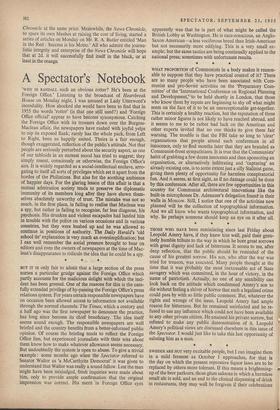THOSE WHO HAVE been reminiscing since last Friday about Leopold
Amery have, if they knew him well, paid their genu- inely humble tribute to the way in which he bore great sorrows with great dignity and lack of bitterness. It seems to me, after deep reflection, that the public should be reminded of the cause of his greatest sorrow. His son, who after the war was tried for treason, was executed. Many people thought at the time that it was probably the most inexcusable act of State savagery which was committed, in the hour of victory, in the name of patriotism. Actually, no one of any sensibility can look back on the attitude which condemned Amery's son to die without feeling a shiver of horror that such a legalised crime could pass by with so little public comment. But, whatever the rights and wrongs of the issue, Leopold Amery had ample reason for bitterness. But he remained uninfected and he re- fused to use any influence which could not have been available to any other private citizen. He retained his private sorrow, but refused to make any public demonstration of it. Leopold Amery's political views are discussed elsewhere in this issue of the Spectator. 1 would just like to take this last opportunity of saluting him as a man.
































 Previous page
Previous page